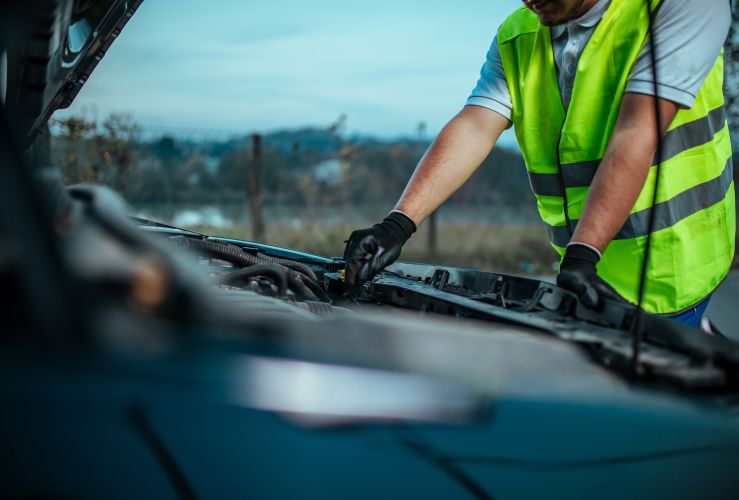Unless you're a learner driver, your car shouldn't stall at all (save those rare moments when your motoring skills fall short).
Why does my car keep stalling?
If your car is stalling on a regular basis, it's likely a fault related to air flow, fuel or mechanics.

Common reasons an engine stalls: Why do cars stall?
If your car keeps stalling, it could be due to one of the following issues:
- No fuel in the tank
- Fuel mixture not rich enough - i.e. too much oxygen
- Faulty fuel pump
- Faulty alternator
- Faulty EGR valve
- Flat battery
- Blocked air filter
- Low fuel pressure (may be an issue if car stalls on inclines)
- Clutch problems (manual only)
- Coolant meter displays ‘hot’ reading
- Ignition issues - loss of spark
Car stalling problems with a manual transmission
If like most Britons you have a manual car, your engine is more likely to stall. This is because of the clutch - if you don't engage it properly or switch to neutral when coming to a halt, the engine may stall.
Dealing with a stalled engine: What should I do if my engine stalls?
After stalling, you'll lose power steering followed by power brakes.
You should apply the foot brake and move over to the side of the road - in as safe a location as possible.
Once parked, turn on your hazard lights and try to start your engine again.
If you have jumper cables - or can borrow a set - use these to jump-start your engine. If this fails, there may be a more serious problem with your car.
An idle stall
If you stall while idling, you won't be able to move over to the side of the road. In such a case, call the police and/or your car breakdown provider for help. Do not get out and push the car off the road if you are in traffic. The safety of you and your passengers should be foremost in your mind.
Stalling problems in an automatic: Can you stall an automatic?
Although stalling is a more common occurrence in a manual car, it is also possible to stall an automatic car.
All automatic cars feature a torque converter. This manages transmission fluid, ensuring your engine keeps running while at a stop. If your torque converter fails, it is likely to stall.
Reasons for such failures vary, but most likely culprits include overheating, dirt in the transmission fluid and issues with the stall speed.
Stall speed-test
If you find your automatic car stalling, you may need to carry out a stall speed-test if your think that the stalling is due to your torque converter being faulty.
You'll need a tachometer - RPM reader - to carry out the stall speed-test.
Locate your car's manual and find out what the RPM should be. Prepare your tachometer.
How to carry out a stall speed-test on an automatic car
Stop your car from moving by placing immobilisers on your wheels.
Engage the parking brake.
With your foot on the accelerator as far as it will go, start the engine. Switch from park to drive, but instead of engaging the accelerator, leave your foot on the brake.
With your foot on the brake, engage the accelerator for a few seconds (no more than five), then check your tachometer. If the stall speed is lower than the specified RPM in your car's handbook, you have an issue.
When you're finished, it is crucial to take your foot off the accelerator first, then the brake.
Where can I get a replacement torque converter?
Only attempt a DIY solution if you have sufficient knowledge and experience. If you are unsure, visit your garage for assistance.
Your local car parts store should be able to sell you a new torque converter.
Of course, you may decide it's easier to get your garage to carry out the stall speed-test and replace the torque converter if necessary.




